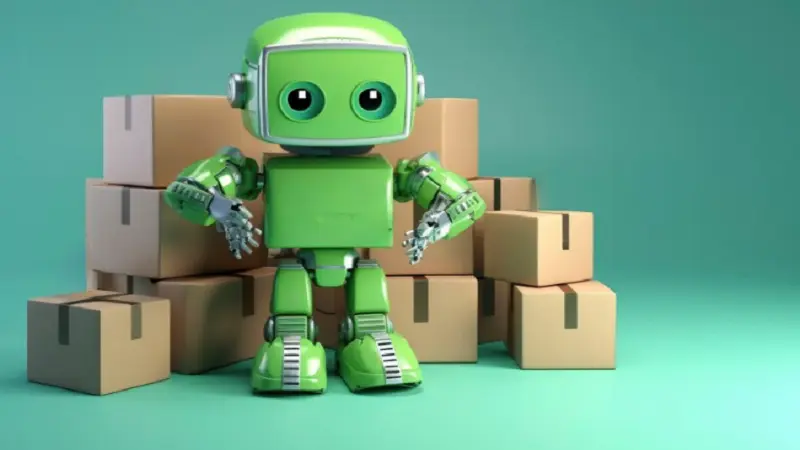In recent years, Amazon has been on a buying spree, acquiring companies that can expand its footprint beyond e-commerce and into the homes and lives of millions of consumers. Among these acquisitions, the most intriguing is Amazon’s $1.4 billion purchase of iRobot, the company behind the popular Roomba vacuum. While this deal has the potential to transform how consumers interact with technology in their homes, it has also raised eyebrows, particularly from regulatory bodies concerned about privacy and antitrust implications. Sources Commission Amazon 1.4b Irobot Cheereuters
This article delves into the various sources of information surrounding this acquisition, the concerns it has generated, and what the future might hold for Amazon and iRobot.
The Genesis of the Deal
Amazon’s acquisition of iRobot was announced in August 2022, with the tech giant offering $1.4 billion in cash for the company. For many, this move was a clear indication of Amazon’s ambitions to further integrate smart home technology into its ecosystem. With devices like Alexa, Echo, and Ring already in millions of homes, adding iRobot’s Roomba to its portfolio seemed like a logical next step.
Roomba, with its autonomous vacuuming capabilities, has become synonymous with smart home convenience. It’s not just a gadget; it’s a symbol of how far home automation has come. By acquiring iRobot, Amazon would not only gain access to this popular device but also to the vast amount of data these robots collect as they navigate consumers’ homes.
The Role of Data in the Acquisition
At the heart of this acquisition lies a significant factor: data. Roombas maps the layout of users’ homes, collecting detailed information about the spaces they clean. This data, when combined with Amazon’s existing data troves from Alexa, Ring, and other smart devices, could give the company an unprecedented view into consumers’ lives.
Amazon’s interest in iRobot is not just about selling more Roombas; it’s about the valuable data that comes with them. This data could enhance Amazon’s ability to tailor its products, services, and advertisements to individual consumers, making its offerings even more compelling. However, this also raises concerns about privacy and how much data a single company should have access to. Sources Commission Amazon 1.4b Irobot Cheereuters
Regulatory Scrutiny: Privacy and Antitrust Concerns
The acquisition quickly caught the attention of regulatory bodies in the United States and Europe. Privacy advocates have voiced concerns about the potential for Amazon to further extend its surveillance capabilities through iRobot’s technology. The idea that a company could have detailed knowledge of your home’s layout, combined with data on your shopping habits, viewing preferences, and voice commands, is unsettling for many.
In the United States, the Federal Trade Commission (FTC) began investigating the deal to determine if it would give Amazon too much control over the smart home market. The FTC’s scrutiny is part of a broader trend where tech giants face increasing pressure from regulators who are concerned about their growing power.
In Europe, the European Commission has also expressed concerns about the deal. The European Union has been particularly vigilant about data privacy and antitrust issues, as seen in its cases against other tech giants like Google and Apple. The acquisition of iRobot by Amazon has sparked fears that the company could use its dominance to stifle competition and further entrench its position in the smart home market.
Antitrust Implications: A Monopoly in the Making?
Amazon’s acquisition of iRobot has not only raised privacy concerns but also antitrust alarms. Antitrust laws are designed to prevent companies from gaining too much market power, which can lead to higher prices, reduced innovation, and fewer choices for consumers. By adding iRobot to its already extensive portfolio, Amazon could potentially reduce competition in the smart home market.
Critics argue that Amazon’s acquisition of iRobot could lead to a monopoly in the smart home sector. With control over key products like the Echo, Ring, and now Roomba, Amazon could set the standards for smart home technology, making it difficult for competitors to thrive. This could result in fewer choices for consumers and higher prices for smart home devices.
Moreover, Amazon’s influence over the market could stifle innovation. Smaller companies that might have introduced new and innovative products could find it hard to compete with Amazon’s vast resources and established customer base. This lack of competition could lead to a slower pace of innovation, ultimately hurting consumers.
Industry Reaction: Mixed Opinions
The tech industry’s reaction to Amazon’s acquisition of iRobot has been mixed. Some see it as a natural progression for a company that has already established itself as a leader in smart home technology. They argue that the deal will lead to better integration of smart home devices, making them more efficient and easier to use. Sources Commission Amazon 1.4b Irobot Cheereuters
Others, however, are more cautious. They worry that Amazon’s growing dominance in the smart home market could lead to a situation where consumers have little choice but to buy Amazon products if they want a fully integrated smart home experience. This could limit competition and reduce the incentive for other companies to innovate.
What’s Next for Amazon and iRobot?
As Amazon’s acquisition of iRobot moves forward, several outcomes are possible. The deal could go through with minimal changes, allowing Amazon to integrate iRobot’s technology into its existing ecosystem. This would likely lead to the development of new smart home products and services that leverage the combined data from Roomba and other Amazon devices.
However, the deal could also face significant regulatory hurdles. The FTC, the European Commission, and other regulatory bodies could impose conditions on the acquisition, such as requiring Amazon to limit its use of data collected by Roombas or to ensure that other companies can compete fairly in the smart home market.
In a worst-case scenario for Amazon, the deal could be blocked entirely. This would be a significant setback for the company’s smart home ambitions but would likely be seen as a victory for those concerned about privacy and competition in the tech industry.
The Broader Implications for the Tech Industry
Amazon’s acquisition of iRobot is just one example of how tech giants are seeking to expand their reach into every aspect of consumers’ lives. Companies like Amazon, Google, and Apple are increasingly moving into new markets, leveraging their existing data and resources to gain an edge.
This trend raises important questions about the future of the tech industry and the role of regulation. As these companies continue to grow, it becomes increasingly important for regulators to ensure that they do not abuse their power. Privacy, competition, and innovation are all at stake, and the outcome of Amazon’s iRobot acquisition could set a precedent for how future tech deals are handled.
Conclusion: A Deal with Far-Reaching Consequences
Amazon’s $1.4 billion acquisition of iRobot is more than just a business transaction; it’s a move that could reshape the landscape of smart home technology. While the deal offers the potential for greater integration and innovation in the smart home market, it also raises serious concerns about privacy, competition, and the power of tech giants.
As regulators scrutinize the deal, the outcome will have significant implications not only for Amazon and iRobot but for the entire tech industry. Whether the acquisition is allowed to proceed, modified, or blocked entirely, it will serve as a critical test of how society balances the benefits of technological advancement with the need to protect consumers and ensure a competitive market.
For now, the future of Amazon’s iRobot acquisition remains uncertain. But one thing is clear: this is a deal that will be closely watched by consumers, regulators, and industry players alike. The stakes are high, and the outcome will shape the future of smart home technology for years to come. Sources Commission Amazon 1.4b Irobot Cheereuters





